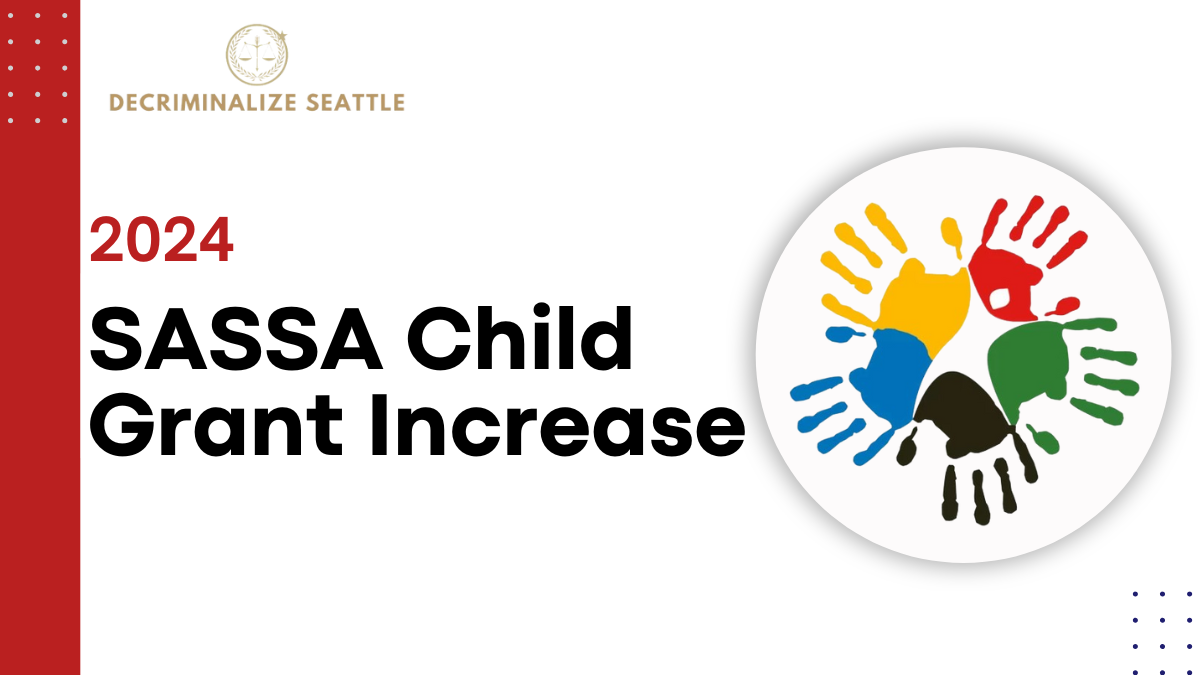South Africa is grappling with significant socio-economic challenges characterized by high unemployment rates and deep-rooted poverty affecting a large portion of the population. Recent statistics indicate that around 40% of the working-age population is unemployed, while over 55% of citizens live in poverty. This alarming economic situation has far-reaching consequences on the country’s social stability, public health, and particularly the welfare of children.
2024 SASSA Child Grant Increase
The Child Support Grant (CSG), administered by the South African government, is a crucial safety net that provides financial relief to families in need. With an estimated 13.2 million children receiving this grant, it is one of the government’s key instruments in alleviating poverty.
- Monthly Grant Amount: R530 per child
- Food Poverty Line: R760 per child per month
However, the current grant amount of R530 falls about 30% short of the established food poverty line of R760. This disparity reveals a significant gap between policy intentions and the actual cost of living, making it difficult for families to meet basic nutritional needs. For instance, Sarah Hlongwane, a mother of 12, struggles to stretch the monthly grant to cover essential expenses like food, school transportation, and housing.
Proposed Measures to Alleviate Poverty
Experts and policymakers have proposed several measures to strengthen poverty alleviation programs in response to the ongoing poverty crisis. These proposals focus on immediate relief and long-term structural changes, aiming to provide a stronger safety net for South Africa’s most vulnerable citizens.
1. Expanding VAT Exemptions on Essential Food Items
The Government of National Unity (GNU) has suggested expanding the list of essential food items that are exempt from value-added tax (VAT). This initiative aims to lower the cost of basic goods, indirectly increasing the disposable income of low-income households. By reducing the tax burden on essential items, the government hopes to alleviate some financial pressures many families face daily.
2. Capping Administered Prices
Economic analysts, such as Mervyn Abrahams, advocate for capping administered prices, particularly those of electricity tariffs and fuel levies. These costs are significant contributors to the overall cost of living and disproportionately affect low-income households. By regulating these prices, the government can help stabilize living expenses and prevent sudden increases that could drive families further into poverty.
3. Increasing the Child Support Grant
A central recommendation from economic justice groups is to increase the child support grant to match or exceed the food poverty line of R760 per month. Given that the current grant amount falls well below this threshold, raising it would provide immediate financial relief to millions of children and their families. Ensuring the grant aligns with the food poverty line would also help families access a basic nutritious diet, which is essential for the health and development of children.
Addressing Stunting and Long-Term Health Issues
The impact of poverty on children’s health is profound. Experts emphasize the need to tackle long-term health issues such as stunting—a severe form of malnutrition affecting approximately 30% of boys and 25% of girls under the age of five in South Africa. Stunting has long-lasting effects on children’s cognitive and physical development, which in turn affects their educational performance and overall well-being.
To address these issues, adequate nutritional support through initiatives like the child support grant, as well as other health and education programs, is essential. By improving children’s health and development, the government can enhance their chances of achieving economic success later in life.
Economic Impact and Long-Term Consequences
The current economic strain has grave implications for the health and development of South African children. Stunting, which is a direct consequence of malnutrition, leads to long-term cognitive impairments and increased vulnerability to diseases. This affects the individual’s quality of life, places additional burdens on the healthcare system, and hinders overall economic growth.
| Challenge | Impact |
|---|---|
| High Unemployment | 40% of working-age South Africans are unemployed, reducing household income and increasing poverty. |
| Inadequate Child Support Grant | The grant amount of R530 is below the food poverty line, making it insufficient for basic nutrition. |
| High Cost of Living | Administered prices like electricity and fuel drive up living costs for low-income households. |
| Stunting and Malnutrition | Affects 30% of boys and 25% of girls, leading to cognitive impairments and health complications. |
Conclusion
The complex economic and social difficulties experienced by South Africa highlight the urgent requirement for a comprehensive strategy to tackle poverty and improve social safety nets. Elevating the child support grant, controlling living expenses, and broadening VAT exemptions on necessary items are crucial to alleviating the severe challenges experienced by numerous South African households.
The government can provide a more robust safety net for its most vulnerable populations by addressing immediate financial relief and long-term structural changes. This strategy is essential to improve the quality of life for children and low-income families and foster social stability and public health in the nation.
Click here to know more.

Arvind is an avid automobile enthusiast who is passionate about all things on wheels. From the latest car models to classic vintage rides, I love exploring the automotive world’s intricate details and engineering marvels. With years of experience in test-driving, reviewing, and analyzing cars, I provide readers with comprehensive insights and honest opinions.
